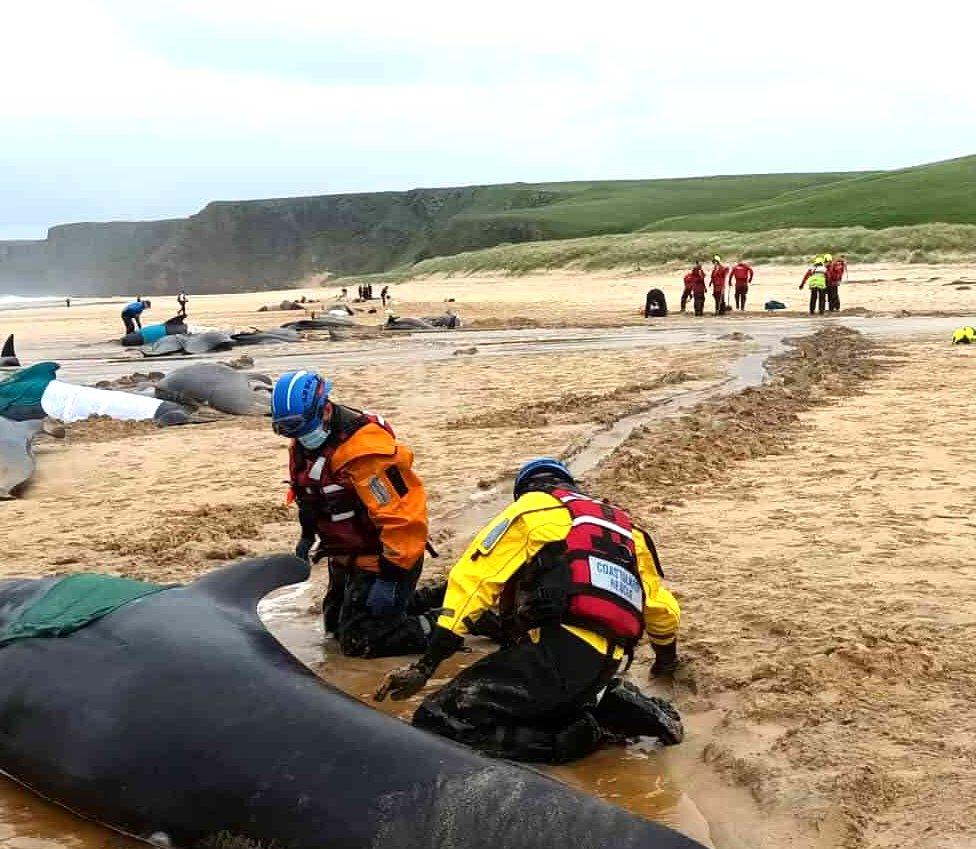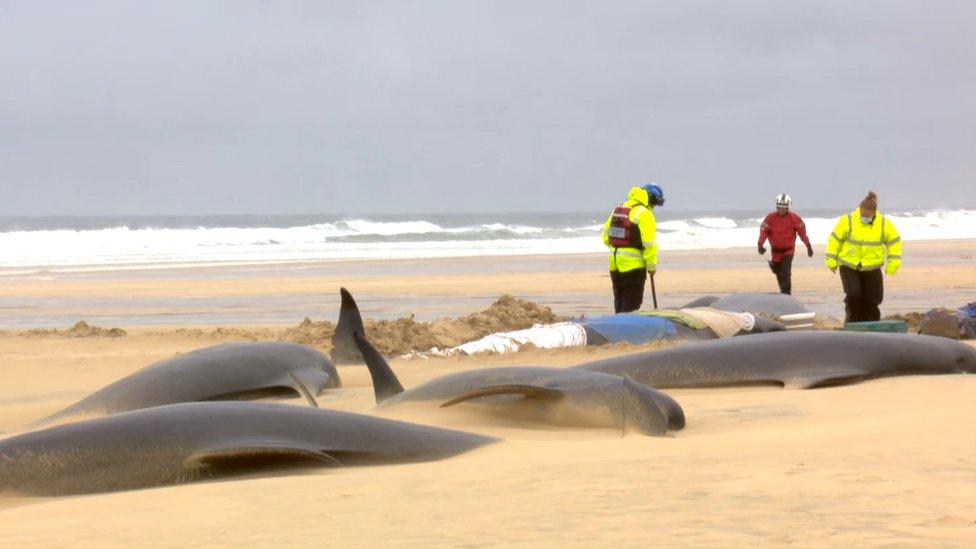Entire pod of 55 whales dies after mass stranding on Lewis
- Published
About 55 whales were stranded on Sunday morning
An entire pod of 55 pilot whales has died after a mass stranding on a Western Isles beach.
Only 15 were alive after they washed onto Traigh Mhor beach at North Tolsta on the Isle of Lewis at about 07:00 on Sunday morning.
Marine charity British Divers Marine Life Rescue (BDMLR) attempted to refloat one of the more active whales but it was then restranded.
The decision was taken to euthanise the remaining whales on welfare grounds.
Western Isles Council - Comhairle nan Eilean Siar - has asked people to avoid the area as a clean-up operation began.
The BDMLR, external released an update on Sunday evening which said that one of the dead whales appeared to have had a vaginal prolapse.
This led them to suspect that the whole pod stranded due to one female giving birth.
Pilot whales are known for their strong social bonds, so often when one whale gets into difficulty and strands, the rest follow.
Attempts continued throughout the day to give the surviving whales first aid.

But after the attempt to refloat one of the whales, it was found further down the beach.
A further three whales then died, leaving 12 still alive - eight adults and four calves.
A statement said: "At about 15:30, the local vet along with the Coastguard, Fire and Rescue, and a forensics vet came to the conclusion that the shallow beach and rough wave conditions made it too unsafe to refloat the remaining animals.
"Considering how long the pilot whales had been out of the water in addition to the poor conditions, it was decided that they should be euthanised on welfare grounds."
Members of the Lewis community, Stornoway Coastguard, Stornoway and Shawbost Fire and Rescue, the Scottish Marine Animal Stranding Scheme (SMASS), the Scottish SPCA, and Civil Air Support were all involved in the rescue effort, with vets and marine experts being flown in to help.
SMASS will now carry out post mortem examinations of the bodies to conclude the cause of the stranding.
Pilot whales are small whales characterised as part of the dolphin family.

Pilot whales are social and therefore more likely to stick together when one gets into difficulty
Earlier BDMLR's Welfare and Conservation Director Dan Jarvis told BBC Scotland that the longer the whales were on the beach, the less likely it was that they would survive.
He said: "They have evolved to not have the ability to support their own weight on land. So when they are stranded they can crush themselves to death.
"Pilot whales don't usually come in to shore. They would be potentially disoriented, distressed from what has led to the stranding, and distressed from the stranding itself and being surrounded by family members who have died around them.
"This is one of the biggest incidents we've had in the last couple of decades."
A Comhairle spokesperson said: "Comhairle nan Eilean Siar asks that the public follow police advice and avoid Traigh Mhòr.
"The Comhairle has engaged with professionals and is now working with partner organisations to clear the beach."